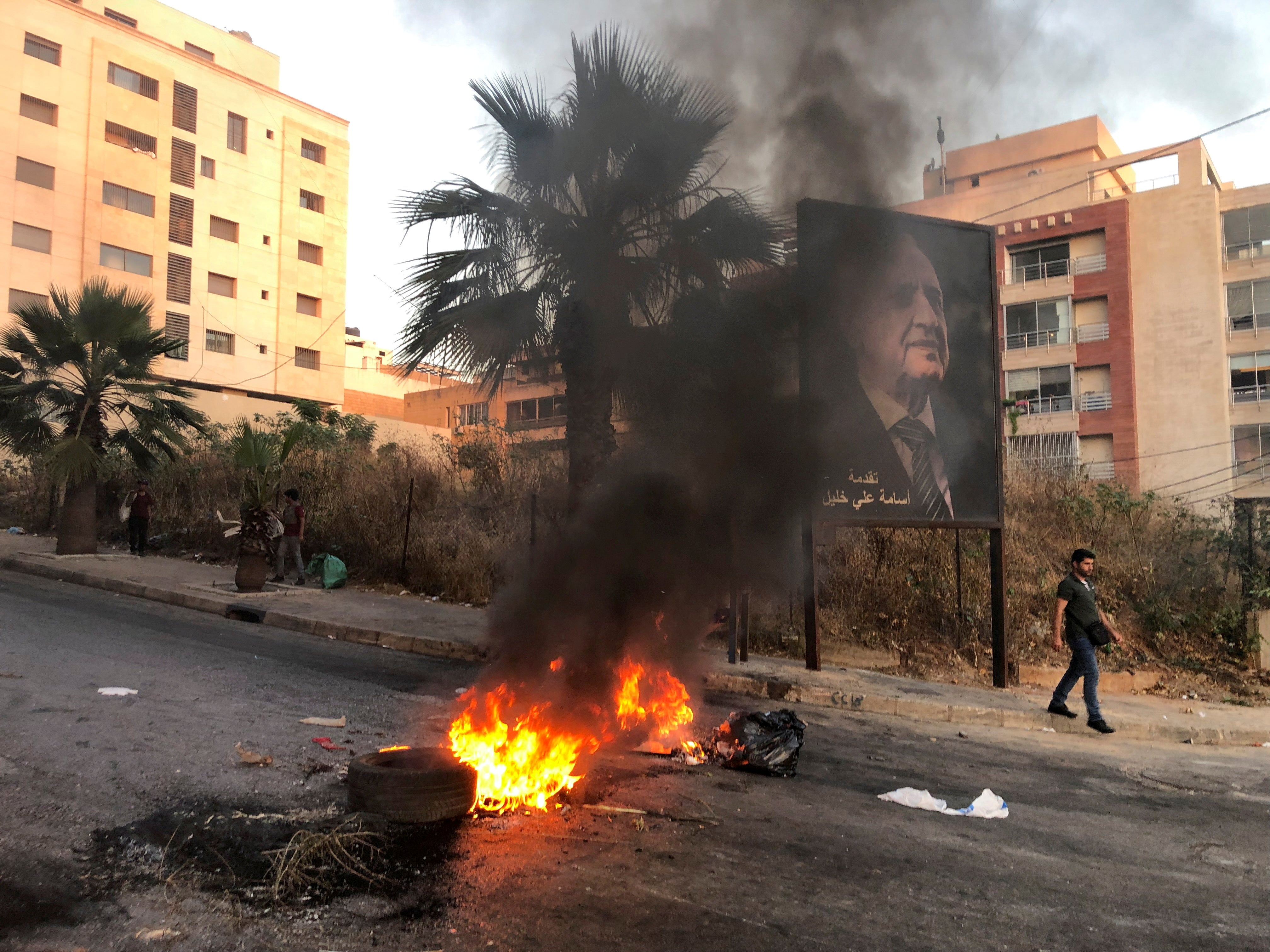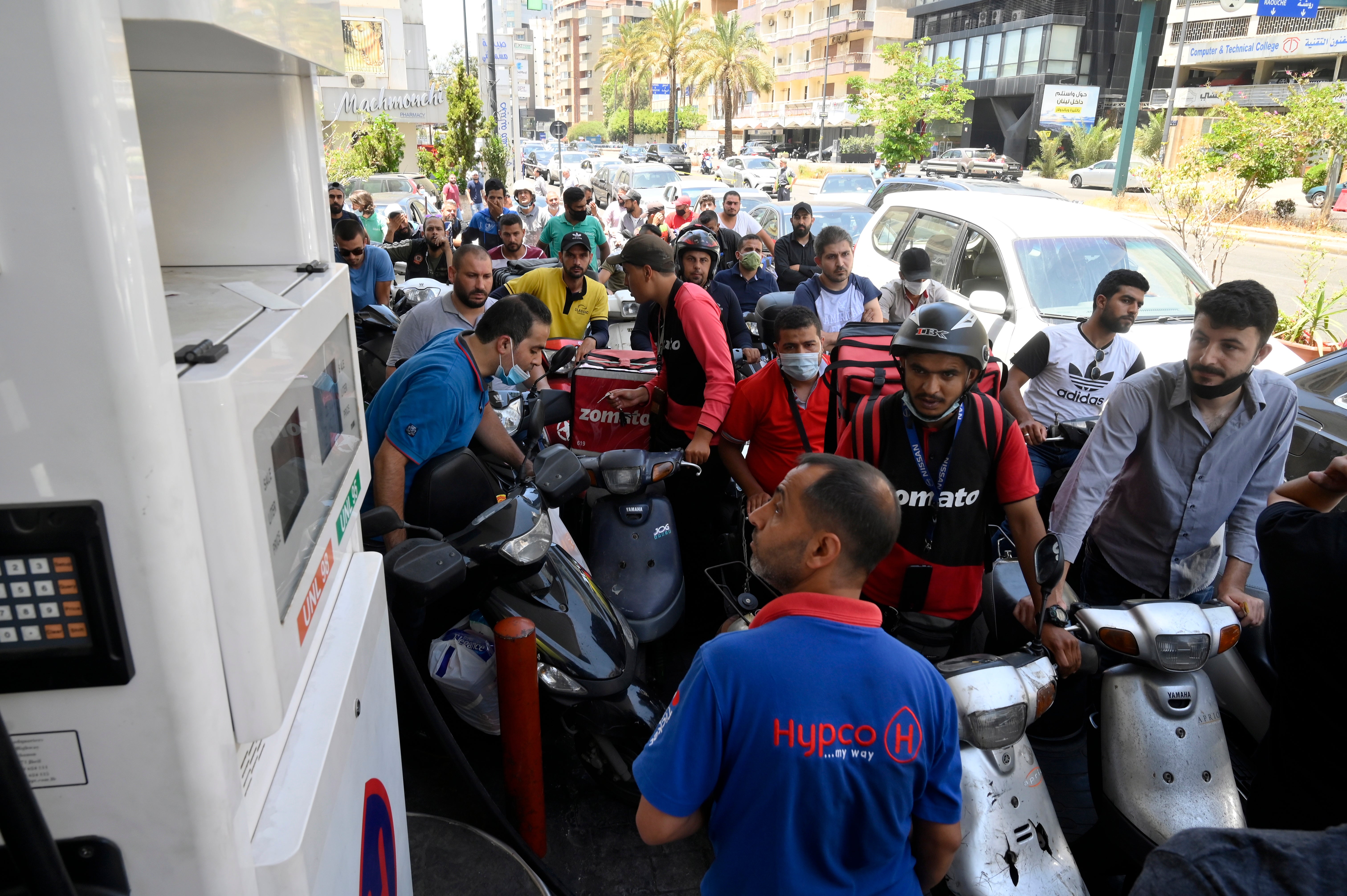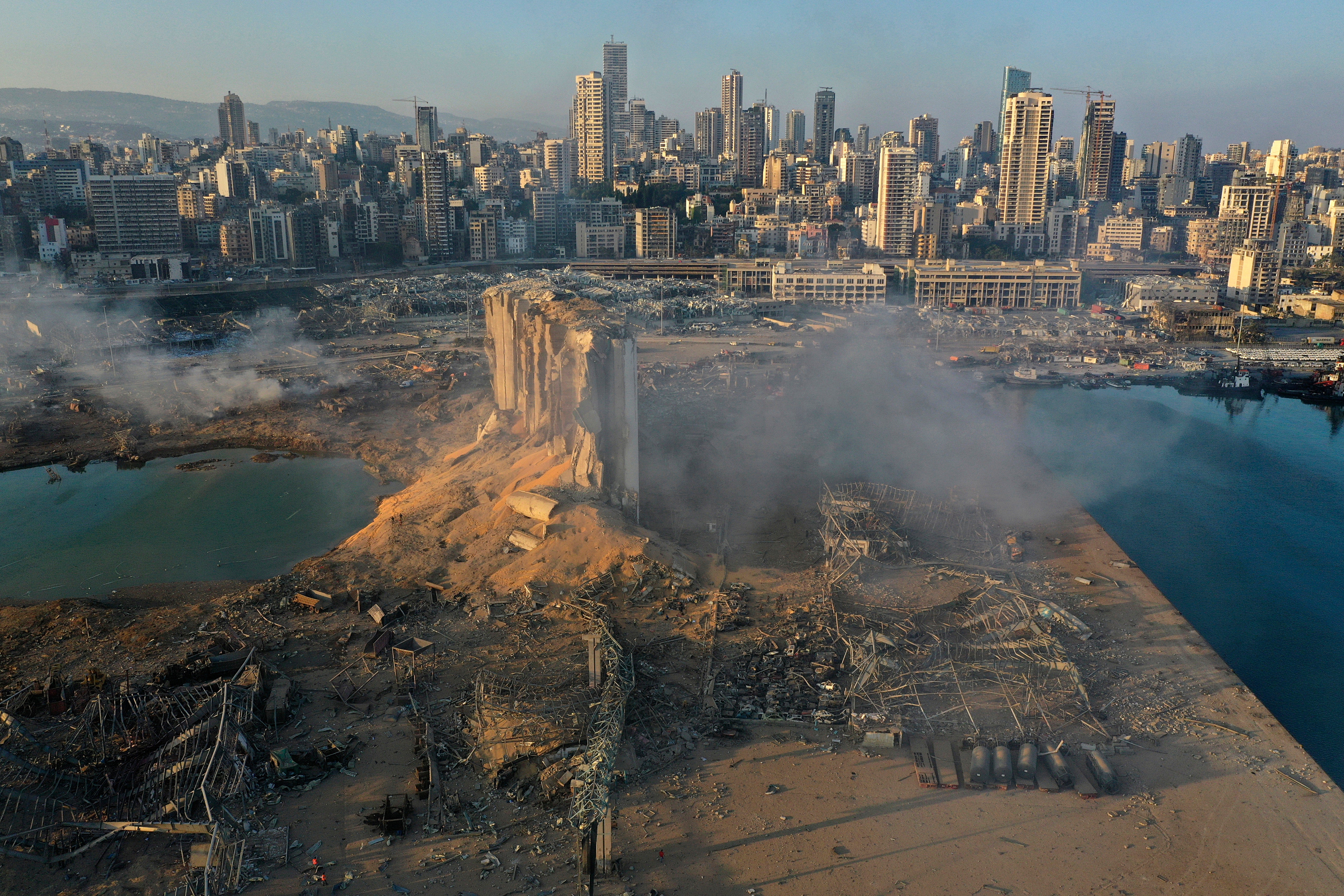Lebanon ‘days away from social explosion’ warns caretaker PM
Crippling fuel and power shortages have resulted in shootouts at petrol stations and left citizens with just an hour of mains power a day

Your support helps us to tell the story
From reproductive rights to climate change to Big Tech, The Independent is on the ground when the story is developing. Whether it's investigating the financials of Elon Musk's pro-Trump PAC or producing our latest documentary, 'The A Word', which shines a light on the American women fighting for reproductive rights, we know how important it is to parse out the facts from the messaging.
At such a critical moment in US history, we need reporters on the ground. Your donation allows us to keep sending journalists to speak to both sides of the story.
The Independent is trusted by Americans across the entire political spectrum. And unlike many other quality news outlets, we choose not to lock Americans out of our reporting and analysis with paywalls. We believe quality journalism should be available to everyone, paid for by those who can afford it.
Your support makes all the difference.Lebanon is just “days away from a social explosion” the country’s prime minister has warned, as he pleaded for foreign aid to save the country from total collapse.
In an impassioned speech to ambassadors and diplomats in Beirut, Hassan Diab, the country’s caretaker PM, urged the international community to save his country from what he called “death and demise”.
The World Bank has called Lebanon’s economic collapse one of the world’s worst in the past 170 years. The currency has lost nearly 95 percent of its value since last year, while food prices have more than quadrupled in the same time period.
There are crippling fuel and power shortages, which have resulted in shootouts at petrol stations, and left citizens struggling with just an hour of mains power a day. The United Nations has warned that more than three quarters of the country’s population does not have access to – or cannot afford to buy – food.

“Lebanon is a few days away from the social explosion,” Mr Diab said on Tuesday, urging friendly nations to extend assistance despite the lack of a proper government.
“I appeal through you to the kings, princes, presidents and leaders of brotherly and friendly countries, and I call upon the United Nations and all international bodies, the international community, and the global public opinion to help save the Lebanese from death and prevent the demise of Lebanon,” he added.
The spectacular collapse of the tiny Mediterranean country of six million is anchored in decades of corruption and mismanagement but crescendoed in late 2019, quickly spiralling out of control.
A foreign currency shortage has crippled the import- and dollar-dependent nation, leaving residents struggling to find fuel, medicines and basic supplies. Swathes of the country only have a few hours of mains power a day, threatening hospitals and food stores, and leaving entire neighbourhoods in darkness.
Compounding the crisis was the pandemic and an enormous blast at Beirut port in August last year, which killed more than 200 people and destroyed swathes of the capital. The government, under the leadership of Mr Diab, resigned shortly afterwards.

Billions of dollars of international aid pledged at the time of the explosion were tied to the formation of a new government and a reform plan to deal with rampant corruption. But the political elite, who have vied for power and traded blame, have yet to agree on a cabinet.
Mr Diab said on Tuesday that linking aid to reform a deeply corrupt system has become a “threat to the lives of Lebanese” and to the country’s stability.
“The Lebanese are facing this dark fate alone,” he added.
Earlier this year the United Nations issued famine warnings about Lebanon. On Tuesday, the American University of Beirut’s Crisis Observatory released a report that said a month’s worth of main meals for a family of five now costs more than three times Lebanon’s minimum wage.
The UN’s child agency warned last week that 77 per cent of households did not have food or cannot afford to buy food.
These percentages are only going to rise in the near future, according to experts.
“Subsidies are being removed at the speed of light,” said Dr Rami Zurayk, a food security expert and professor at AUB’s Faculty of Agricultural and Food Sciences.
He warned that some wheat and fuel subsidies still in place will likely be lifted to disastrous effect.
“The increase in the real cost of living and food will then increase exponentially. Life expectancy is being reduced.”
Martin Keulertz, assistant professor in the food security programme at AUB, said dependence on aid was not sustainable, particularly as food crises were erupting elsewhere in the world such as Tigray in Ethiopia, which could see charities having to divert away resources.
That leaves people in Lebanon relying on remittances.
“You need to motivate the Lebanese diaspora to continue with remittances to support livelihoods in terms of food,” he added.
“It is the only life line, otherwise you are facing crunch time in the country.”
Meanwhile, without a government and without serious steps to work on reforming the country, there is little hope of cash injections from foreign nations.
In fact, the European Union’s foreign policy chief told Lebanon’s leaders last month they were to blame for the political and economic crisis and some could face sanctions if they continue to obstruct steps to form a new government and implement reform.
Qatar’s foreign minister is expected to visit Lebanon this week to discuss aid to specific Lebanese sectors, including the army.
What sin have the Lebanese committed to pay a dear price? Are the Lebanese people supposed to die at hospital’s doors on the way to holding the corrupt accountable?
Other Gulf nations, such as the United Arab Emirates and Saudi Arabia, which once ploughed billions into Lebanon, now regard it as a “lost cause”, according to regional experts who cited the rising influence of Iran through Lebanese militant group Hezbollah.
“Lebanon has dropped to non-existence when it comes to Saudi Arabia and UAE,” said Emirati political analyst Abdulkhaleq Abdulla, who regularly visits Lebanon.
“They are very angry with what Hezbollah is doing and they are very sad to see what Lebanon has become.”
In his Tuesday speech Mr Diab noted repeated calls for assistance to be linked to reform, but said “the siege imposed” on Lebanon was not affecting the corrupt – an apparent reference to politicians.
"What sin have the Lebanese committed to pay a dear price? Are the Lebanese people supposed to die at hospital’s doors on the way to holding the corrupt accountable?” he asked.
Join our commenting forum
Join thought-provoking conversations, follow other Independent readers and see their replies
Comments